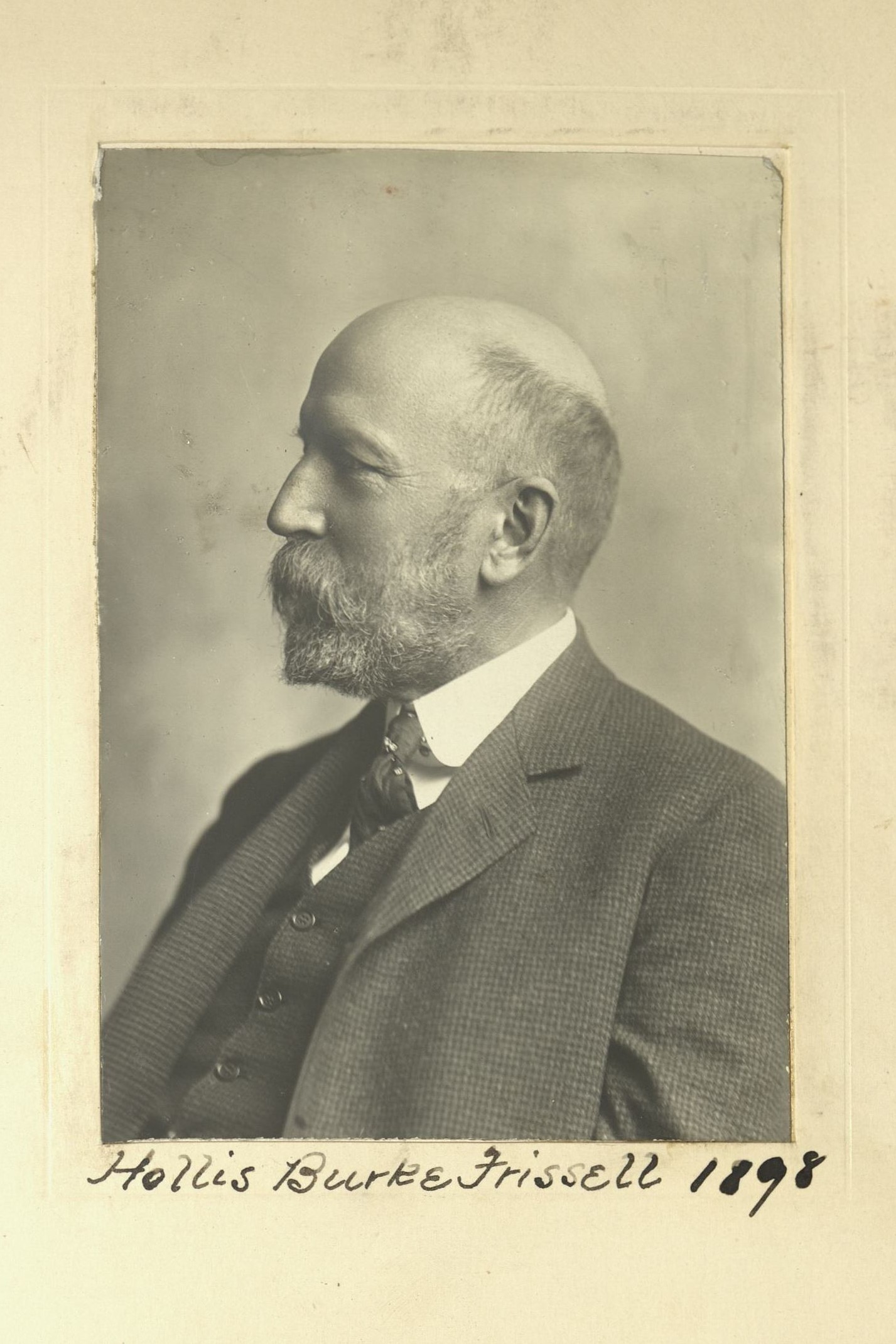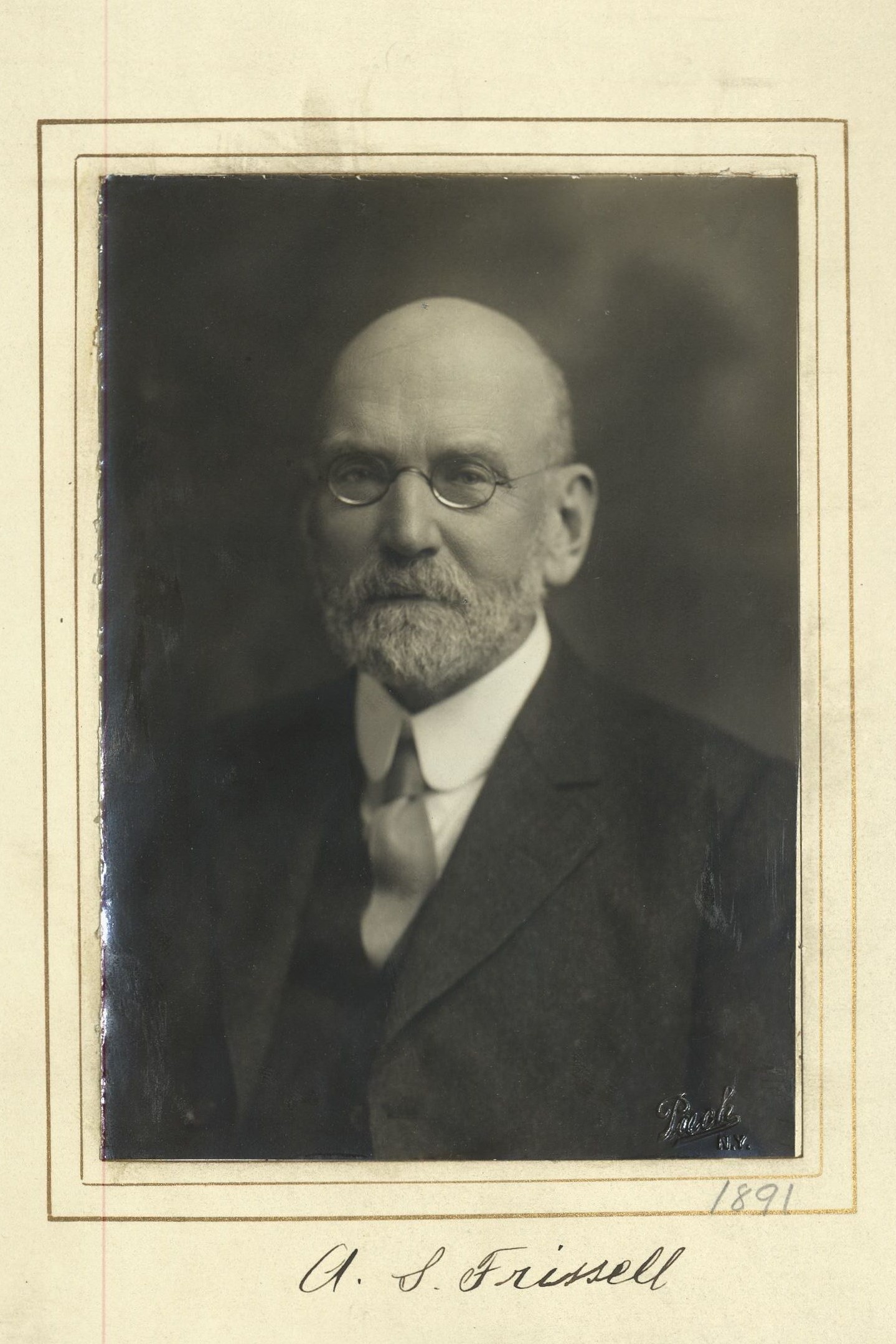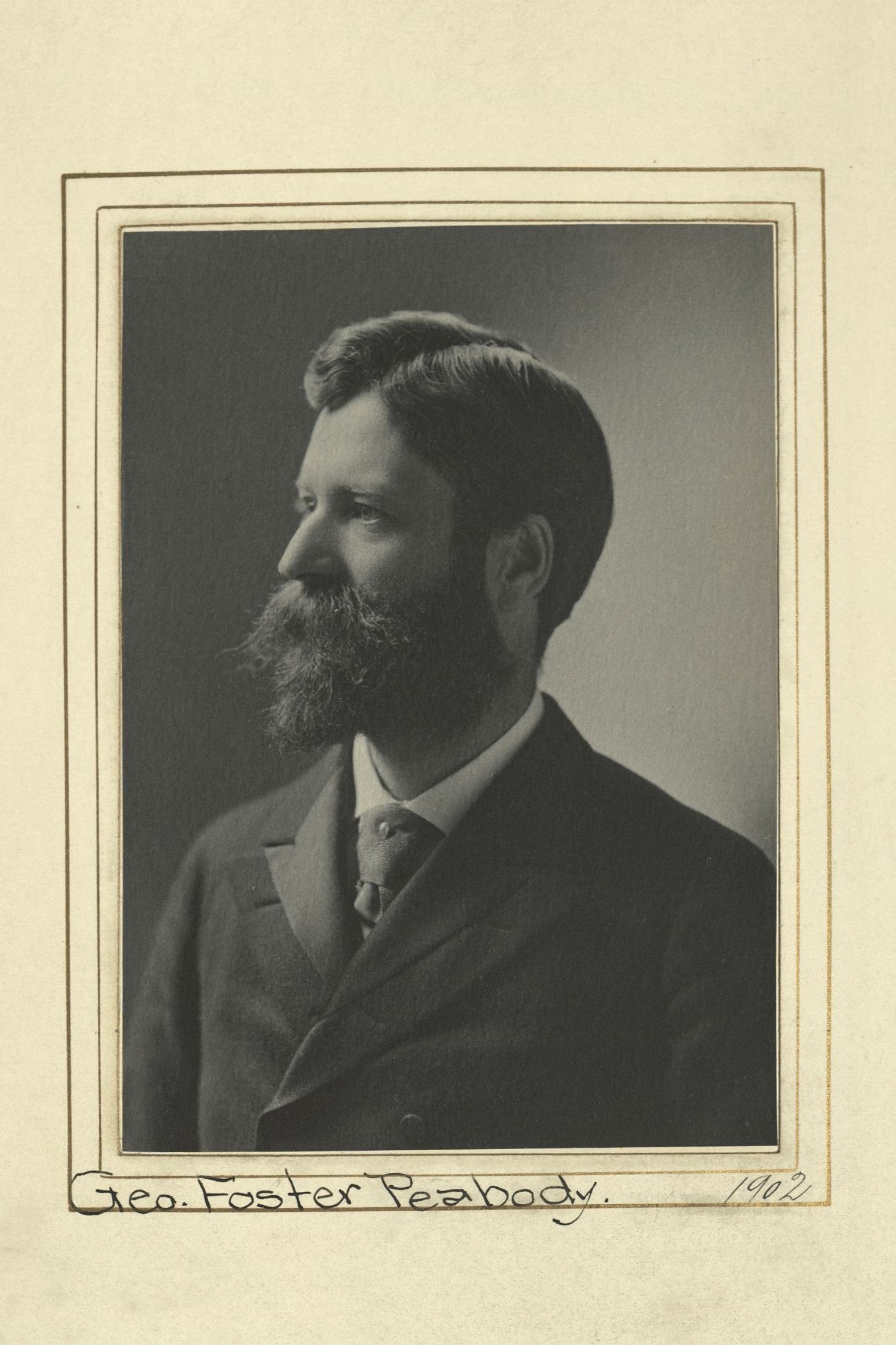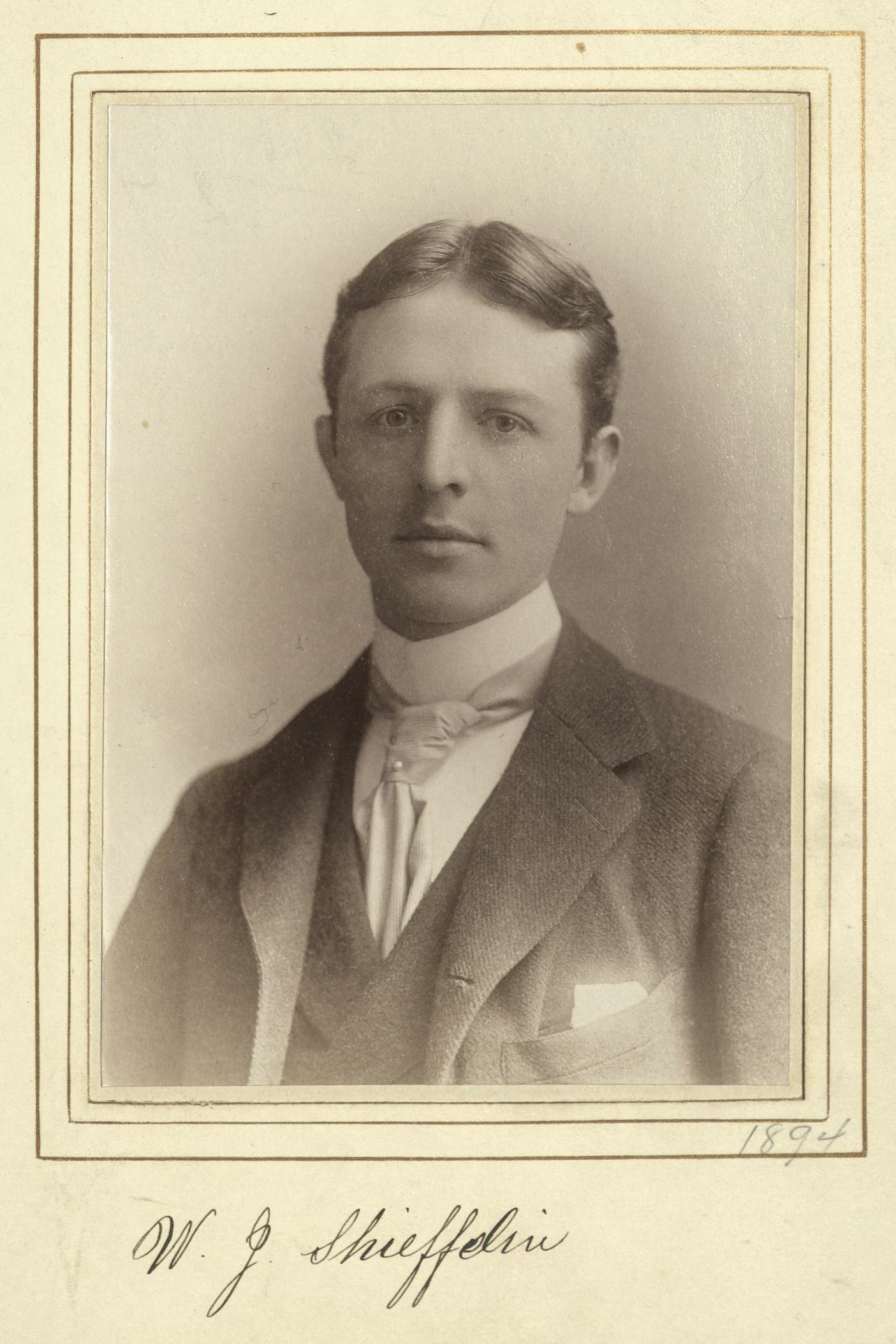Member Directory,
1847 - 1922
Hollis Burke Frissell
Principal, Hampton Institute
Centurion, 1898–1917
William J. Schieffelin and Daniel C. Gilman
South Amenia, New York
Whitfield, New Hampshire
Age forty-seven
Hampton, Virginia

Archivist’s Notes
Brother of Algernon S. Frissell; uncle of Lewis F. Frissell; great-uncle of Varick Frissell
Century Memorials
James Gallatin was a son of Albert Gallatin. He was of a studious, retiring nature, and devoted the greater part of his time to charitable works. He was for several years active as the President of the New York Sanitary Reform Society and secured the passage of the Tenement House Reform Bill of 1879, and was an earnest worker in the Charity Organization Society.
Henry E. Howland
1891 Century Association Yearbook
If goodness consists in wisdom united to the will and constant endeavor to promote the welfare of needy fellow-men, Hollis Burke Frissell was good. For he was prudent and tolerant, a man who spoke gently from out of the abundance of knowledge; and his aim was the welfare of those for whom he felt responsible, and never his own self-assertion or advantage. Knowing the needs and function, and the possibilities of the institution committed to his charge, he could afford to wait patiently till the views of others had been expressed, before presenting his fully weighed consideration of the matter. It was also his nature and temper to wait, and then with kindly smile and complete sympathy circumvent the erroneous view.
His schooldays were spent at Phillips Andover Academy, from where he entered Yale to graduate in the class of ’74. He then studied for the ministry. In 1880 he went to Hampton as chaplain, and upon the death of General Armstrong, its first principal, Frissell’s obvious fitness at once caused his appointment to the very large vacant place. Thenceforth, as indeed he had done before, he gave his common sense, his increasing experience, his faculty of organization, and the example of his word and character to promote the welfare of that leading institution for the broadest and soundest advancement possible of the colored people. Much of his strength and time was perforce spent in raising funds to meet its ever enlarging needs and permit it to make use of its great opportunity.
Henry Osborn Taylor
1918 Century Association Yearbook





